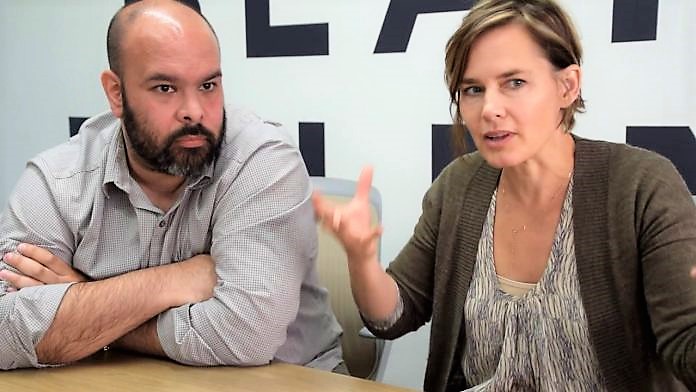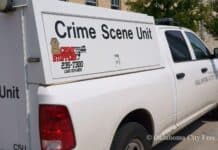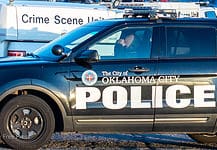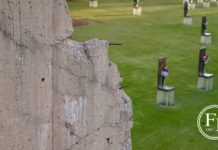Last Updated on August 6, 2023, 2:46 AM | Published: July 24, 2017
Since 2009, Code for America has been making a positive impact on governments mostly at the local level.
“This is really about people helping people,” said Jennifer Pahlka, founder of Code for America.
She was answering questions and speaking to a collection of people in Tulsa Friday from Oklahoma, Kansas, Texas and Arkansas Friday. Code for Tulsa hosted the meeting.
Participants were there for ideas and fresh approaches to connecting people with local government.

“We’ve got to stop saying that we don’t like what government is doing,” said Pahlka in the video interview featured in this story. “We have the skills, the tech and data skills, to make it work much better than it does today.”
The meeting was designed for those currently involved and those who are interested in starting a local affiliate group or “brigade.”
Carlos Moreno, a leader in Code for Tulsa, told us people came to the meeting from Wichita, Dallas, Muskogee and the Osage Nation headquartered in Oklahoma.
OKC and Tulsa brigades are among about 70 brigades nationwide that help code and data specialists bring their technology skills to the process of connecting people to their local governments.
Both of Oklahoma’s largest cities, Oklahoma City and Tulsa have active brigades.
Oklahoma City
The OKC brigade has completed their first project over the last several years of their organization. It was a data visualization of the City of Oklahoma City budget.
An illustration of how Code for America spawns good government collaborations is how Open Wichita, the Wichita, Kan., brigade, got some of their ideas from the OKC brigade.
And they got their ideas from Open Oakland.
Oakland, California’s residents have successfully connected to city government there with that brigade’s leadership in the budget process.
With one big project success under their belts, the OKC brigade is leaning into next year.
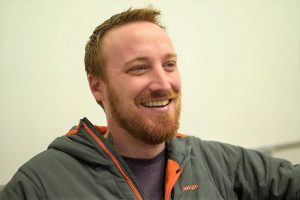
“We are continuing to work on adding new useful visualizations to the Open Budget OKC website,” said Matt Chandler, one of the OKC brigade leaders. “We received the latest 2018 budget data from the city and we are getting it prepped to go on the site.”
We asked Chandler why he works so hard at a volunteer job of organizing Code for OKC.
“I think it is very important to have people integrated closely with their local government, and technology can make that easier,” said Chandler. “We want to keep building tools that can enable residents to have a better connection with the city government.”
Tulsa
The Tulsa brigade was one of the earliest to organize as the Code for America idea expanded starting in 2009. And they have learned a lot in the process says Carlos Moreno, one of the founders of Code for Tulsa.
He recalled how hard it was at first for the early Code for Tulsa members to connect to the City of Tulsa council members and staff.
“We would pound on the table and get frustrated because they were not understanding us, and they would pound on the table and get frustrated because we weren’t understanding them,” said Moreno.
“Now, we can have a much more collaborative relationship because we have built those bridges beforehand and not after the fact.”
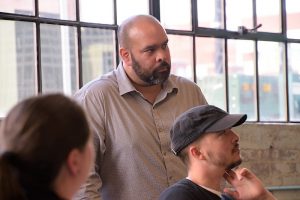
One big project Code for Tulsa has achieved is Courtbot, launched in March.
First developed by the Atlanta brigade, Courtbot automates retrieving court information and texting reminders to city residents about upcoming court appearances mostly for traffic tickets.
Studies show that many of the poor who are in jail are there because of missing court appearances.
According to Code for America, “Prior to CourtBot, each year in Atlanta, an average of 200,000 people got citations. Of those, 40,000 people then missed their court date, resulting in a bench warrant, which means you can be arrested, for failing to appear. This means the next time a person runs a stop sign, they could go to jail.”
Courtbot then allows people to resolve traffic tickets without spending hours waiting at the courthouse and keeps earnest and hard-working taxpayers out of jail for what started as a minor offense.
Wichita
Seth Etter is the founder of Open Wichita. He came to the meeting for new ideas and to make more Code for America connections.

Open Wichita learned from some of the OKC brigade’s work on their city budget data visualization and evolved something similar there.
Etter said that at first, he formed Open Wichita to help connect technologists in Wichita and provide more connections for people.
At about the same time they started Dev ITC, a self-education group similar to groups formed by Techlahoma.
“The motivation for keeping it going shifted from “I’m doing something that I’m benefiting from,” to, “I’m doing something this city obviously needs because so many people are flocking to it.”
The video is available for more viewing on the Free Press YouTube channel. Please consider subscribing to keep up to date on our videos.
Founder, publisher, and editor of Oklahoma City Free Press. Brett continues to contribute reports and photography to this site as he runs the business.
